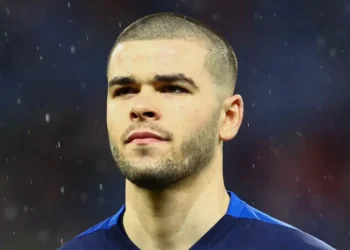Paris Saint-Germain (PSG) have finally etched their name into European football history by winning the UEFA Champions League, becoming only the second French club ever to do so. Their victory not only marks a historic milestone for the club but also breaks a decades-long wait for another French triumph on Europe’s biggest stage since Olympique de Marseille’s legendary win in 1993.
The final, held in a packed and electric stadium, saw PSG overcome a formidable opponent in a tightly contested match. The club’s triumph is the culmination of years of investment, ambition, heartbreak, and rebuilding. Since Qatar Sports Investments took over PSG in 2011, the club has been transformed from a domestic powerhouse into a global football brand. They’ve dominated Ligue 1 for over a decade, but European glory had long eluded them—until now.
PSG’s path to the final wasn’t easy. Throughout the tournament, they demonstrated resilience, tactical evolution, and a newfound maturity. In previous years, they were often criticized for failing to rise to the occasion in key knockout matches. Iconic collapses, such as the 6–1 defeat to Barcelona in 2017 and the final loss to Bayern Munich in 2020, haunted the club’s narrative. However, this season felt different from the outset. Under their current manager, who instilled both discipline and flair, PSG found the perfect balance between attacking brilliance and defensive solidity.
Superstars like Kylian Mbappé and Ousmane Dembélé led the charge with explosive pace and clinical finishing, while experienced players such as Marquinhos and Gianluigi Donnarumma anchored the back. But it wasn’t just the marquee names who delivered; unsung heroes and squad depth played a vital role. The likes of Warren Zaïre-Emery and Vitinha stepped up in key moments, showing that this was not just a team of individuals, but a cohesive unit with a collective goal.
PSG’s triumph holds great significance for French football as a whole. Until now, Marseille stood alone in their 1993 Champions League victory against AC Milan. That win had long been a source of pride not just for Marseille fans but for French football in general. In the years that followed, French clubs came close but fell short—Monaco’s run to the final in 2004 and PSG’s loss in 2020 being notable examples. PSG’s win now ends that barren streak and signals a new era of competitiveness for Ligue 1 on the continental stage.
The broader implications of PSG’s Champions League win are considerable. For years, Ligue 1 has been derided as a “farmer’s league” by critics who questioned the depth of competition outside its top clubs. This victory helps to challenge that narrative. It’s a win not just for PSG, but for the credibility and prestige of French football. It may also encourage greater investment in French clubs, youth development, and domestic infrastructure, boosting the league’s international profile.
There’s also a cultural and symbolic resonance to PSG’s achievement. As a club based in the capital, representing a diverse and dynamic city, PSG embodies a modern identity in European football. Their fan base stretches globally, and their success resonates with millions. For Paris, a city long starved of continental footballing success, the Champions League trophy represents not only sporting triumph but also civic pride.
For PSG’s owners, this moment vindicates over a decade of strategic spending, brand building, and relentless pursuit of excellence. Yet, it also raises new questions: can PSG now sustain this success and establish themselves as a consistent force in Europe, like Real Madrid or Bayern Munich? Or is this a peak that will be hard to replicate?
One thing is certain: this victory changes PSG’s story forever. No longer are they the nearly men of Europe. No longer will their domestic dominance be met with caveats about European underperformance. They now belong to the elite group of clubs that have conquered Europe—and in doing so, they’ve ensured that the shadow of 1993 no longer looms quite so large over French football.
As celebrations erupt across Paris and France, PSG’s Champions League win marks a new chapter—one of fulfillment, of legacy, and of possibility. Marseille may have been the first, but PSG have ensured they
won’t be the last.











